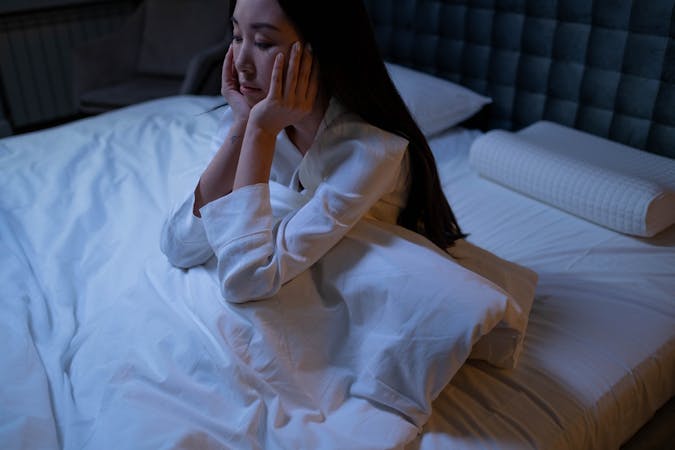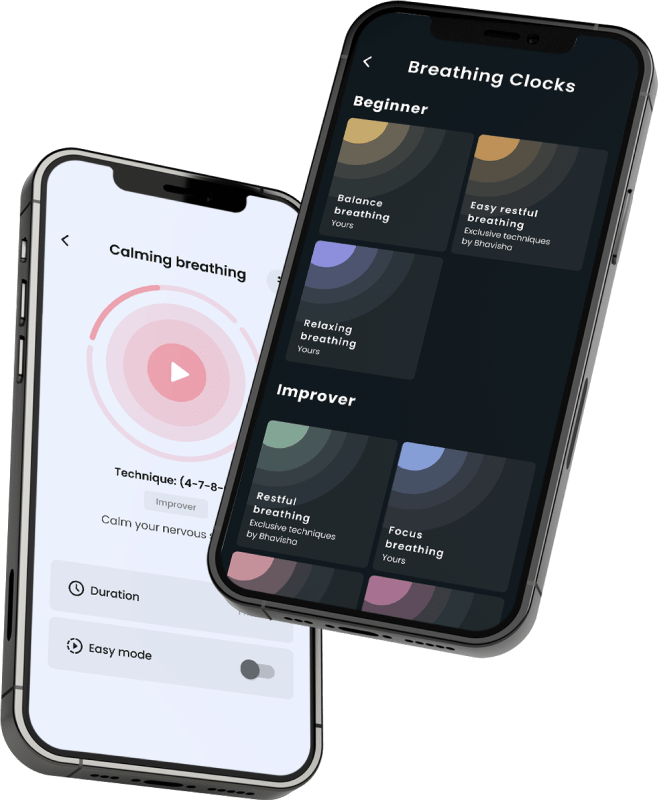Exhausted but Can't Get to Sleep? Here are 10 Tips!

Sleep deprivation is worryingly common in adults, with as many as 1 in 5 of us reporting not getting enough sleep on a regular basis. After missing crucial rest, the body experiences noticeable side effects, sometimes leading to certain health conditions. Not getting enough sleep results in sleep debt- the need for extra rest to make up for lost sleep. Frustratingly enough, once we've racked up some sleep debt, we can end up having difficulty actually gaining those extra hours due to an inability to fall asleep. Here, we will discuss why this phenomenon occurs and how to tackle it.
How Much Sleep do You Need by Age?
Between being a newborn and 1 year old, the average human sleep requirements alter drastically. The average school age child requires 9 to 12 hours of sleep each night. This includes teens, who can require as much as 10 hours per night, depending on the individual.
Things get a little complicated for teens and young adults though, as they often develop "sleep latency" around this time of life. This is where the brain starts to get ready for sleeping later on at night, meaning a later waking time is required. This is often not compatible with learning or working hours, causing an accumulation of sleep debt.
Adults generally require 7-9 hours of sleep per night, with elderly people sometimes reporting they require less. However, there is a broad distribution of sleep requirements in the general population, due to certain conditions such as Short Sleeper Syndrome or chronic fatigue.
Symptoms of Overtiredness
Overtiredness can occur for a variety of reasons such as sleep schedule disruptions, wakefulness, or missing out on rest because of external obligations.
First and foremost, overtiredness affects focus and other mental abilities. The fatigue associated with overtiredness can cause slow reaction times, lack of clear thinking, anxiety, hypersensitivity to light and loud noises, and restlessness. It can lead to more serious mental health consequences such as anxiety and depression.
The symptoms of overtiredness can impact a person's mental effectiveness in a variety of tasks, which can cause issues at work. Excessive fatigue is also dangerous, causing 16.5% of fatal traffic accidents each year.
Can Sleep Deprivation Make Me Too Tired to Sleep?
Strangely, many people report feeling more energised when they are lacking in sleep. However, the heightened energy they experience tends to be frantic and inconsistent. This is because when we miss out on sleep regularly, it can have mind-altering effects that interfere with a person's circadian rhythm. In this way, lack of sleep can indeed cause issues with finally getting the necessary rest needed to recuperate. This creates a cycle of sleep deprivation, physical and psychological fatigue symptoms, and insomnia.
Why do I Feel Like I Can't Fall Asleep?
Studies have shown that sleep acts as a mechanism for calming the mind. Throughout the day, the brain makes synaptic connections through thinking and doing. These connections cause us to have faster reaction times and greater learning capacity up to a certain stage. However, when we miss out on sleep, the brain becomes overrun with these connections, making reactions exaggerated and mental functions impaired. This is why we can sometimes feel strangely awake after missing out on sleep.
Furthermore, cortisol levels are shown to be higher in people who haven't slept enough. Cortisol is commonly known as a stress hormone, but it is naturally released early in the day to give a waking effect on the mind and body. When cortisol is released late at night, this can lead to sleep problems.
Why Over-tiredness Leads to Sleep Disorders
When a person is "naturally sleepy", this means their circadian rhythm is coming to the end of their waking period and they are producing sleep hormones such as melatonin and adenosine. When our melatonin and adenosine levels are at their height, we naturally drift to sleep. However, if we struggle against the natural pull toward sleeping (e.g. if you have a late flight to catch), the body will instead produce cortisol to keep us alert during the period of activity.
If the body is flooded with cortisol, this means that when we do get a chance to rest, we "fight" against feeling sleepy. We can see this very clearly with young children and babies, as they become agitated when they are overtired and are laid down for a nap.
Overall, the brain requires a rhythmic production of hormones in accordance with the time of day. This is known as the circadian rhythm. When this rhythm becomes heavily disrupted, the hormonal disturbance can lead to a variety of sleep disorders.
How can I improve my sleep health?
Routine
Keeping a regular sleep schedule is the most effective way to fight overtiredness. Following a bedtime routine every day will help maintain a healthy balance of hormones. This way, you will be much more likely to feel sleepy at a scheduled point in the night.
Sleep Hygiene
"Sleep hygiene" refers to helpful practices that can improve sleep quality and reduce symptoms of sleep disorders. These practices include limiting certain substances such as caffeine, nicotine, and alcohol so that they are not ingested close to bed time. People are also encouraged to avoid exercising for the few hours before bed, as well as limiting worry and light exposure at this time.
Diet
As always, it is recommended to eat a balanced and healthy diet that is rich in nutrients. According to sleepfoundation.org, due to the complexity of both sleep and nutrition, it is not possible to study and pinpoint a single diet that would be beneficial to sleep. Instead, it is recommended to eat healthily and avoid overindulging on less healthy foods.
However, some specifics have been noted. For instance, a diet high in carbohydrates has been shown to increase wakefulness and lower sleep quality.
Certain foods contain melatonin, which naturally makes it easier to fall asleep at bedtime. Such foods include pistachios, milk, rice, oats, mushrooms, and bananas, among others.
For some people, foods that have a high histamine content can disrupt sleep. This is due to a histamine intolerance, which leaves people feeling uncomfortable and wakeful at night. It is recommended by some doctors to try eliminating high histamine foods in the evening to see if this aids sleep. High histamine foods include but are not limited to: fermented foods and beverages, dried fruit, spinach, avocado, and processed meat.
The mediterranean diet contains lots of high fibre fruits and vegetables as well as lean meats and fish. This diet is shown to be highly beneficial for sleep quality.
Lifestyle
Certain poor lifestyle habits can have an effect on our energy throughout the day, which in turn makes it difficult to fall asleep. For instance, the fatigue we may experience due to lack of strength-building exercise can make it hard for the body to distinguish between wakeful and resting periods.
It's essential to create a cozy and enjoyable bedtime ritual. This means incorporating appropriate activities that will help the body and mind wind down, according to your own taste. By making the bedtime ritual enjoyable, it encourages us to keep up the routine.
Work
For some people with ultra-stressful jobs, lifestyle changes or treatment options won't work to fight sleep issues. Instead, alterations to a work schedule or even a career change may be necessary.
Many different issues can come into play when work is affecting sleep. For example, people who report high levels of job boredom report that this affects their level of sleepiness at night. In other cases, sleep-disrupting schedules can make it impossible to maintain a regular bedtime. This can cause anxiety and fatigue in daily life, and can eventually cause a sleep disorder.
What to Do When You're Overtired and Can't Sleep
Get Up!
Studies have shown that when we are struggling to fall asleep, the best thing is to get out of bed. If we busy ourselves with something calming, the brain is more likely to tire than if we lay in bed feeling gradually more frustrated. Furthermore, this tip can help us to unconsciously associate our bed only with sleep, increasing our likelihood of falling asleep faster in future.
Create Darkness
We naturally wake up in response to light, and similarly calm down in the evening when the sky darkens. Is can be difficult to completely control the light pollution in your home, particularly if you live in a city, but you can consider using an eye mask or blackout blinds in the bedroom to help you get tired at bedtime.
According to the national sleep foundation, insufficient light exposure during the day can cause issues with feeling tired in the evening. This is because the body requires a clear indicator of when to wake so that it can calibrate when to sleep. Similarly, some patients with chronic fatigue report insomnia as well, possibly due to a lack of sufficiently wakeful activity during the day.
Try Some Sleep Remedies
First, it would be best to start with herbal remedies, such as valerian. Also, magnesium is known for its relaxing properties.
A common treatment for insomnia is over-the-counter medication such as melatonin supplements. However, it is best to try talking to a medical professional so you can identify all symptoms and investigate any possible other causes of sleeplessness before relying on other drugs. Some sleep remedies can affect our mood and mental capabilities during the day.
Make Time for Resting
Due to the cortisol buildup when we have pushed against natural fatigue, going straight to bed may not be of help. Instead, try steadily relaxing through low-tempo activities you enjoy. There are plenty of resources on Yours App, such as yoga, meditation, and sleep stories.
Talk to a Doctor
The most important things to do when you are having issues with sleeping is to speak to a doctor. This way, you can evaluate your symptoms to see whether it is necessary to test for certain conditions and determine the correct treatment. For some people, symptoms of excess fatigue can lead to an unexpected diagnosis of a physical condition, so it is always best to check.

